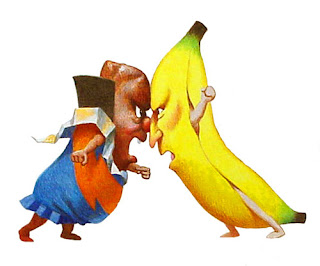Food shopping is something we do almost instinctively. We don't have time to carefully consider every purchase every time, so we buy things we feel must be the healthier, without actually considering why.
Supermarkets rely on these instinctive purchases in order to sell us expensive 'healthy' foods. By falling for the healthy food myths, we are wasting a fortune at the supermarket and can actually be damaging our health.
Supermarkets rely on these instinctive purchases in order to sell us expensive 'healthy' foods. By falling for the healthy food myths, we are wasting a fortune at the supermarket and can actually be damaging our health.
1. Sea salt is better for us
Sea salt can be up to 20 times more expensive than standard table salt, and researchers for Which? found that a third of people think it's better for you. However, the same study, carried out alongside Consensus Action for Salt and Health (CASH), found that it contains exactly the same amount of sodium chloride - which is the stuff you need to worry about.
It has also been found that using flakes of sea salt encourages us to use more, which is even worse for us than a quick shake of 25p table salt.
It has also been found that using flakes of sea salt encourages us to use more, which is even worse for us than a quick shake of 25p table salt.
2. Bottled water is a vital part of a healthy lifestyle
There has been a bit of an uproar recently because the EU has banned manufacturers of bottled water from claiming it can combat dehydration. The reaction has come from those who point out that anyone who has ever drunk water knows it helps with hydration. However, the scientists were concerned that the manufacturers were trying to imply that bottled water was more hydrating than any other kind - which they point out is untrue.
In fact, water is just water. You might want to filter tap water, but after that, you're pretty much drinking exactly the same thing. Of course your bottle of water might have a pretty picture on it, and you may have seen the adverts, but in the end it's still just water.
In fact, water is just water. You might want to filter tap water, but after that, you're pretty much drinking exactly the same thing. Of course your bottle of water might have a pretty picture on it, and you may have seen the adverts, but in the end it's still just water.
3. The premium rangers are healthier
In theory this should be true, as with more money to spend on the raw ingredients they shouldn't have to fall back on things like salt to improve the taste. However, things like more meat and more cheese in these products mean that this is not necessarily the case.
In reality it all depends on the exact dish. Take lasagne. Which? recently did a study looking into the healthiest supermarket options. It found some things did conform to the 'premium is healthier' stereotype, so the Tesco Finest Lasagne had a third of the salt of the basic one. However, one of the lowest fat levels it found was in Somerfield's Simply Value Beef Lasagne, with 1.8g of fat, compared with Marks & Spencer's Beef Lasagne with 9.5g
In reality it all depends on the exact dish. Take lasagne. Which? recently did a study looking into the healthiest supermarket options. It found some things did conform to the 'premium is healthier' stereotype, so the Tesco Finest Lasagne had a third of the salt of the basic one. However, one of the lowest fat levels it found was in Somerfield's Simply Value Beef Lasagne, with 1.8g of fat, compared with Marks & Spencer's Beef Lasagne with 9.5g
4. The 'healthy' ranges are healthier
Research by Which? has shown that there are plenty of instances where the healthy range is actually worse for you than the standard one.
Its study found Somerfield's Simply Beef Lasagne had less fat than its Healthy Choice Beef Lasagne. Meanwhile Waitrose's Perfectly Balanced Lasagne was higher in salt than its standard one.
Its study found Somerfield's Simply Beef Lasagne had less fat than its Healthy Choice Beef Lasagne. Meanwhile Waitrose's Perfectly Balanced Lasagne was higher in salt than its standard one.
Many snack foods are advertised or packaged as healthy options because they are reduced fat, low fat, lower fat, very low fat, light or even lite. But these marketing messages are meaningless, as they don’t tell you the actual fat or calorie content, or whether it is lower in fat than the ‘less healthy’ alternative. So you have to check that food label. For example, Tesco’s own brand digestive biscuits have 19.1g of sugar per 100g, whereas the ‘reduced fat’ option does have less fat as stated, but more sugar - 21.1g per 100g.
The answer, therefore, is not to take these things for granted. We need to be prepared either to cook from scratch or to read the labels beyond the brand message.

